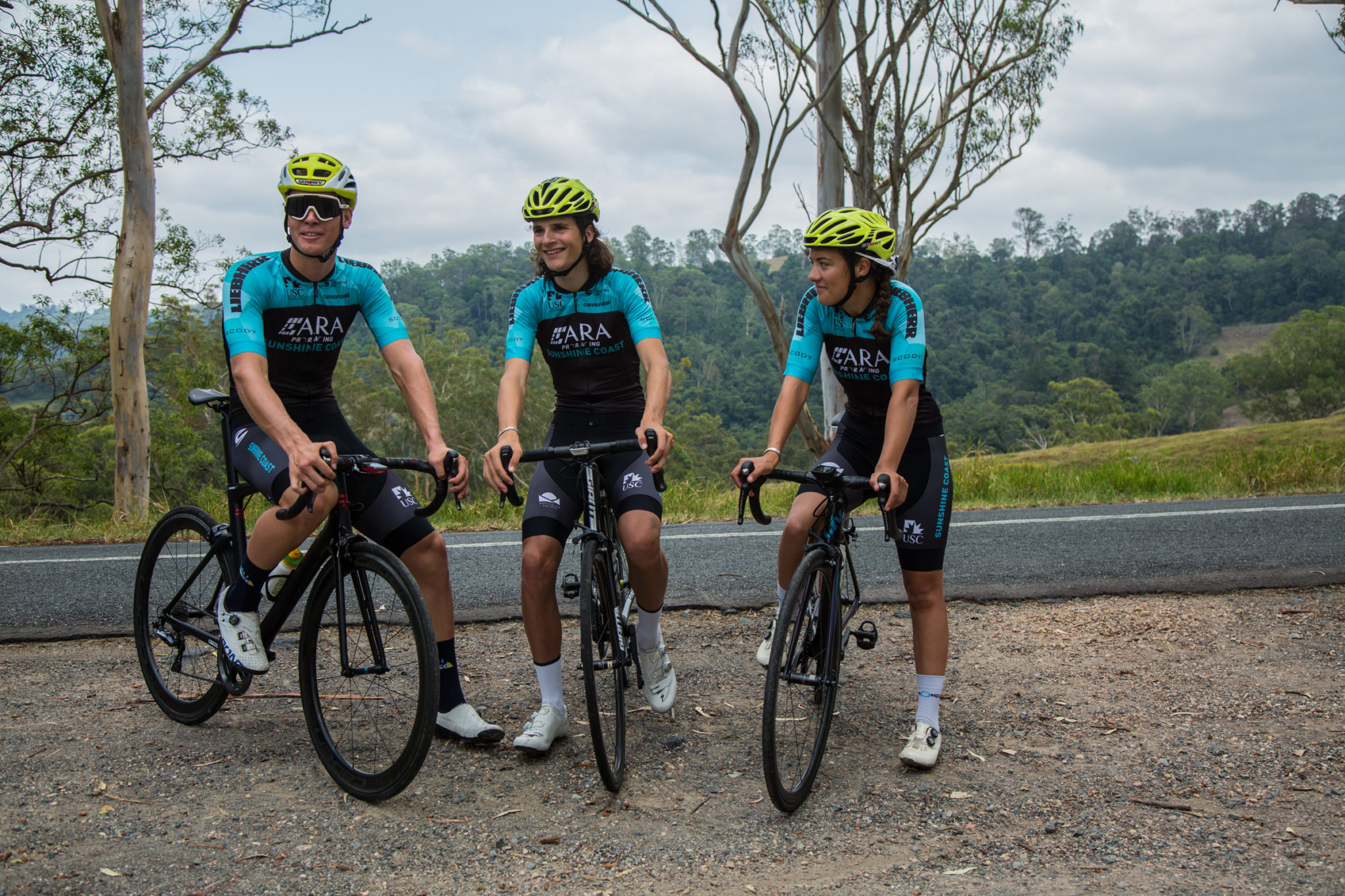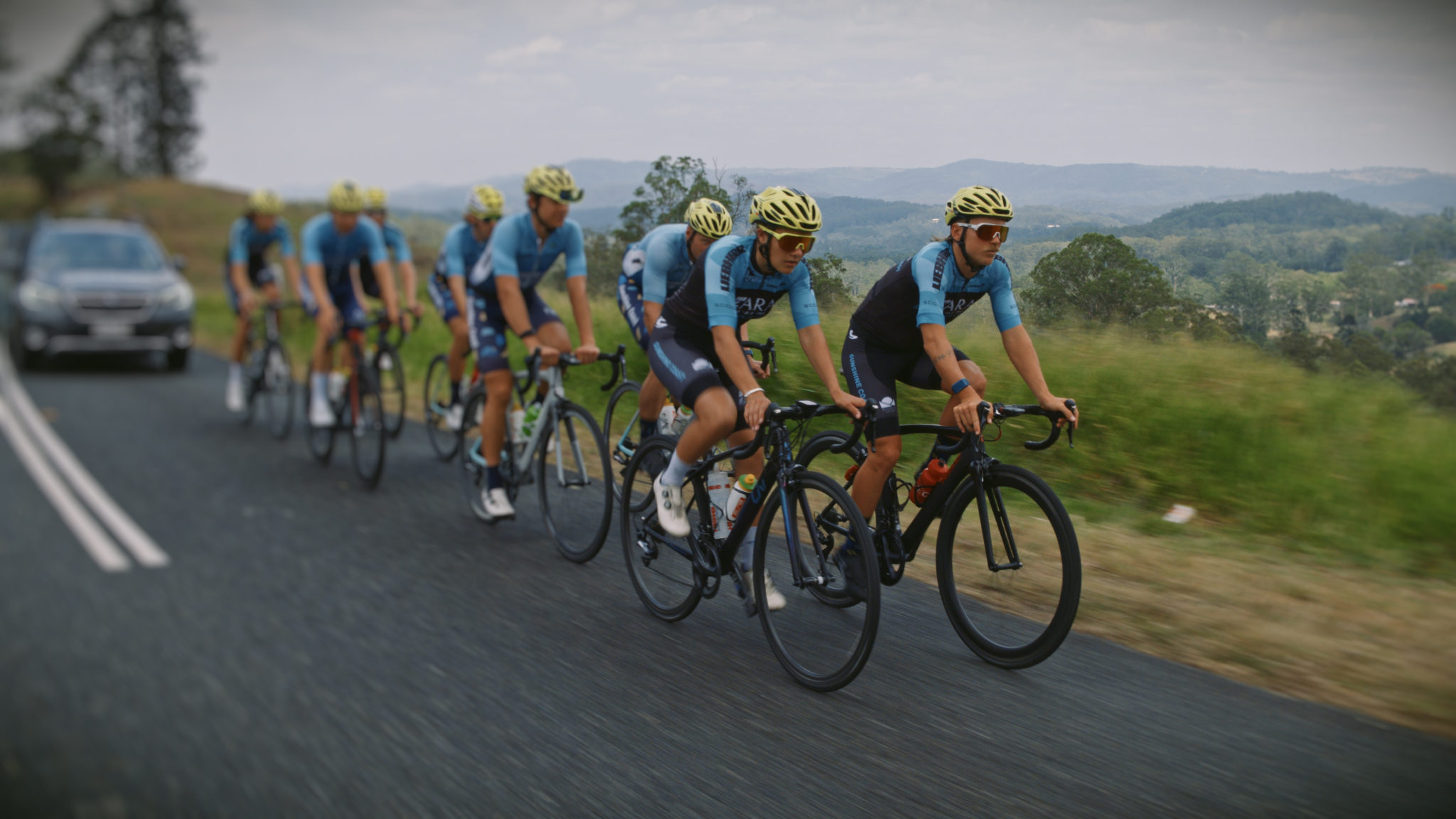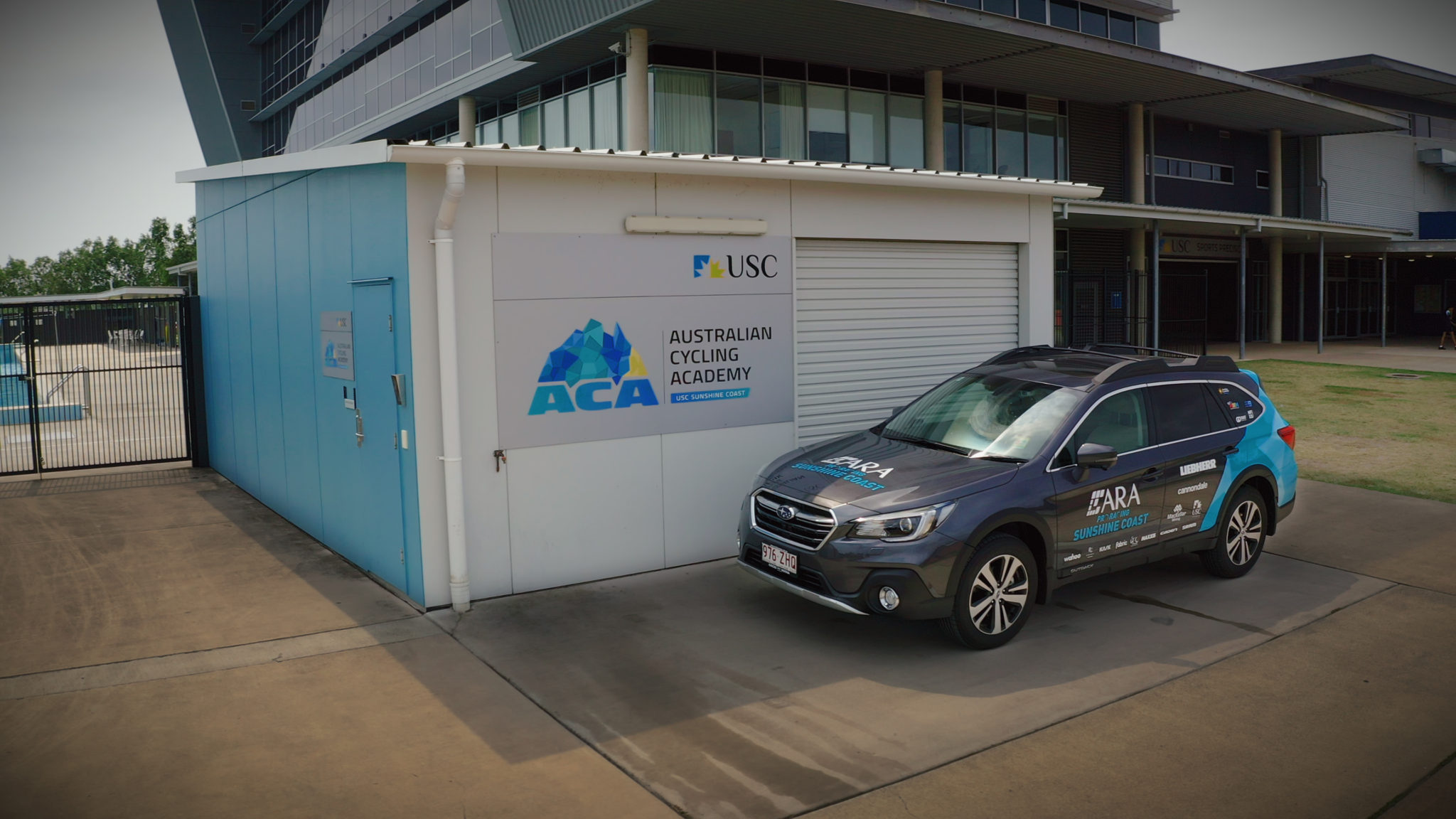
For Sunshine Coast based cycling team ARA-Pro Racing Sunshine Coast, travel is as much a part of the job as riding a bike.
The team, a Union Cycliste Internationale (UCI) Continental level development team which is part of the Australian Cycling Academy at the University of the Sunshine Coast (USC), estimate they are on the road 150 days out of each year, with 100 race days spread throughout Australia, Asia, the US and Europe.
With the emergence of COVID-19 and related travel bans in place, and total cancellation of racing on both the domestic and international calendar, the team has had to get creative through the first half of 2020.
And it did just that, moving quickly to online competition via the virtual platform Zwift, which allows riders to ride from home and follow their avatar through a real-time virtual race scenario.
ARA-Pro Racing Sunshine Coast Director Ben Kersten said the team had adapted quickly to the new reality.
“Utilising the digital technology available has been crucial to the team’s survival during this period,” he said.
“It’s a unique situation we find ourselves in, along with every other industry impacted by COVID-19. With racing and travel on hold, digital platforms like Zwift have been critical in allowing us to continue training and racing together as a team in a virtual capacity.”
The highlight of the online series for team ARA-Pro Racing Sunshine Coast was with rider Maeve Plouffe taking a win in the fourth race of the series.
But with the grip of COVID-19 lessening in some parts of the country, the sport’s governing body, Cycling Australia, has announced a return to racing for domestic teams, with the National Road Series being rescheduled into the latter part of the year.
Major races include the Tour of Tweed, Grafton to Inverell, and the Tour of Tasmania, which will keep the team busy until the end of 2020.
“We have a really good roster this year, with guys like Michael Freiburg, who won the national road title in 2019, and Taj Jones, a Sunshine Coast local who won a stage of the Tour de Langkawi earlier this year, which is one of the biggest races we’re able to do,” said Kersten.
When the revamped calendar was announced, the team undertook a short break, before launching into a schedule of training camps and course recons, designed to get the team back together and ready for a return to competition.
Beyond racing, the team prioritises education and mental health for their roster of predominantly under-23-year-old riders. The athletes are required to enrol in further study or training, with the majority enrolled in university. This education focus has provided a welcome distraction during the challenges of COVID-19.
“From the beginning, the core philosophy of the team has been ensuring our riders develop on and off the bike. This means they are encouraged to study- with many enrolled at USC, and we have staff and processes in place to ensure they are getting the support they need,” Kersten said.
“Many of our riders are young and have moved away from their families to live, train and study on the Sunshine Coast. We have a huge responsibility, especially at this time, to make sure they are coping emotionally. We’re also finding that for riders, having their education to focus on through this has been really positive for their wellbeing.”

Not only has it been a positive distraction, but ACA riders have excelled in their studies, with final grades for semester 1, 2020 being released last week. Over 40 per cent achieved a GPA of six or higher out of seven, while another 30 per cent scored between a five and six.
High performance director Stuart Shaw said the results from this semester were some of the best he has seen from the team.
“We’ve got some world-class athletes in our program, but we also see a level of academic competition within the group as well,” he said. “It’s very encouraging; obviously we want to have people winning Olympic medals, and riding the Tour de France, but we also want to help people to become successful in other parts of their lives.”
The other part of surviving COVID-19 has been diversifying the team’s offerings, and focusing on the team’s sponsors, the lifeblood of the sport.
“Cycling as a sport relies very heavily on sponsorship; there are no ticket sales or TV broadcast dividends that support the teams, as in many other sports. Without sponsorship investment, this sport simply wouldn’t exist,” Kersten said.
“A positive of this time has been that it has given us time to focus on generating new styles on content, and we’ve developed a great video series for our social channels. This has been great for us, but also for sponsors who are also struggling with the current economic conditions.”
“With the massive recent growth in cycling participation, we also see new opportunities to bring cycling into the community. We’ve partnered with Cycling Queensland to create Wheely Fun Camps, a school holiday cycling clinic for kids, held at USC, which will kick off in the September school holidays. We will teach bike skills and safety, and promise to make it Wheely Fun for the kids.”
“These are little wins for us and our sponsors and that’s what it has been about for us during this time- finding the positives and wins where we can.”
At a time when cycling for exercise and recreation is at an all-time high, it’s great to know the Sunshine Coast leads the way as home to the Australian Cycling Academy.